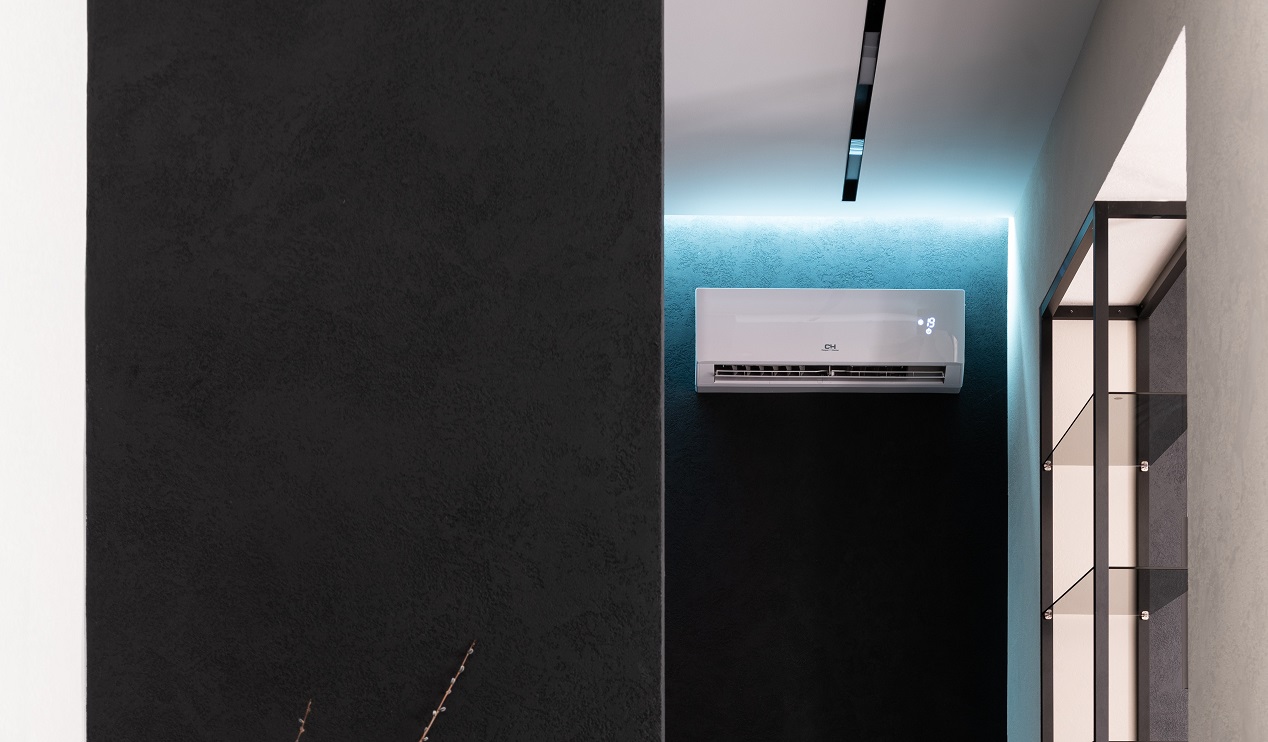The government’s Domestic Renewable Heat Incentive is intended to reduce our reliance on using fossil fuels and to replace them with systems which use renewable energy.
Core to the incentive scheme is replacement of gas boilers with heat pumps. So, how do heat pumps work? Do the advantages in domestic settings stack up? And can industry benefit from heat pumps?
How Heat Pumps Work
Heat pumps work rather like a refrigerator in reverse. Whereas a refrigerator removes heat via a liquid refrigerant to atmosphere a heat pump collects heat from the atmosphere and rejects the heat to radiators and hot water tanks. In this respect the heat pump system comprises a relatively simple circuit where refrigerant flows through an external evaporator coil where a fan is used to blow ambient air across the coil (these are the beige coloured units you see outside properties fitted with this kind of technology).
Refrigerant evaporates from a low pressure liquid state into vapour below ambient temperature so the coil takes in energy at this point. The low pressure vapour is then compressed into high pressure vapour; this process adds energy and increases its temperature (in a similar manner to the heat produced when you pump up bicycle tyres). The high pressure refrigerant vapour is then pumped to the condenser where it is cooled and condensed into high pressure liquid by water flowing through the heating system to heat the building and provide hot water.
Will this provide me with a cheaper way of heating my home?
The answer to this question isn’t straight forward. Why? Well although the government will provide a £5,000 grant to fund the installation of a replacement heat pump system, the total cost of an installation is typically a lot more than this. For example, most contractors will quote in the region of £11,000 to £15,000 to install a heat pump system into the average 3 bedroom semi-detached house with the cost increasing for larger properties. You’ll also need to factor in the potential need for better insulation such as loft insulation, cavity wall insulation and improved double glazing. So the simple maths results in the home owner being left with a minimum installation bill of between £6,000 and £10,000. Following installation, you will then of course be able to muster free energy? Not entirely – once you have installed the system the heating source (the outside atmosphere in a home dwelling) is free but unfortunately and as mentioned above, the system relies upon a pumping system and a compressor which is powered by electricity. Although the cost of this electricity is presently less (per equivalent kWhr) than for gas, we are currently facing increased energy costs. So although less energy is expended in terms of equivalent kWhrs to gas, the running costs could end up being very little different than that of a gas boiler system.
What about industry – can it benefit from heat pumps?
The key point here is the re-use of already available heat. The efficiency of a heat pump is all about where you start from. In other words, more work (energy expended) is required if the initial heat source is at a lower temperature than a heat source from a higher initial temperature. For instance if there’s already an existing heat source which is not being put to good use (such as exhaust gases or steam flow) then these sources would be used to provide primary heat to a heat pump, thus increasing its efficiency hugely and potentially making the system highly viable.
How effective are heat pumps in the real world?
Well there’s a bit of an irony here. Remember that in a domestic setting that during the summer most people aren’t using the central heating very much apart from having hot water available for showers etc. This is a pity because during the summer months the outside ambient heat is far greater than in the winter and so the heat pump system is more efficient. The irony is that during the winter months (when the need for central heating is more obvious) domestic heat pumps do not supply the same level of efficient heating as during the summer months. In other words when we need the heat pump to provide heat to heat our houses during the winter it is less able to do so and during the summer months (when heat pumps are better able to provide heat) they aren’t needed as much.
However, compare this situation with an industrial setting where the initial heat source such as waste exhaust heat or steam is far more likely to be at an elevated temperature, is available all year round and relies upon what is in most cases is a by product of the industrial process. For these reasons the use of heat pumps in an industrial setting becomes extremely viable.
What are the green credentials behind heat pumps?
The green argument behind the use of heat pumps especially for home owners in a domestic setting is interesting. Yes, we are reducing the use of gas which power gas boilers in our homes which is a good thing. However, the system is not entirely green because the electricity used to power the pump and the compressor does not come from entirely green sources. This is due to the fact that electricity generation systems in the UK rely upon a large mix of energy sources – some renewable (e.g. Wind, Solar and Hydro) but also via a large number of gas fired power stations. However, the same can not be said in an industrial setting where the use of heat pumps can be seen as very green. This is because when using what is in many situations would be otherwise wasted heat, then the system efficiency is significant and far above that within most domestic settings. In other words, existing heat energy can be recycled through a heat pump and because the initial heat energy is relatively high to that found in many domestic settings the electrical energy expended to power the heat pump compressor in an industrial setting is comparatively less.
Conclusions
To quote Boris Johnson recently writing in the Sun newspaper “the Greenshirts of the Boiler Police are not going to kick in your door with their sandal-clad feet and seize, at carrot-point, your trusty old combi”. But if you are approached by ‘the ‘Green Brigade’ then please be aware of the issues we have mentioned above, especially regarding domestic settings.
In contrast we believe that there are many opportunities where heat pumps can be provided in industrial environments where the initial investment required is proven and where significant cost reductions can be made.
One question you should be asking of any heat pump supplier is ‘Will the system that you are proposing be at least equivalent or better in terms of cost and efficiency than my existing gas boiler system whether in a domestic or industrial environment?’ To be able to answer this, a survey of your property or buildings is necessary in order to gauge the viability of a heat pump system. Such a survey should be from an independent source and will involve determining the specification of the heat pump system depending upon the heat loss of the home or buildings involved in an industrial situation. Only once armed with this information will you be able to determine the likely running costs and potential savings you may be able to enjoy and whether a heat pump is suitable for your home or for your company.
About Op-tec Systems
We are an independent engineering consultancy with specific expertise in the provision of heating, ventilation and air conditioning systems. For further information on any of the above then please email us at projects@op-tec.co.uk or visit our web site at op-tec.co.uk

